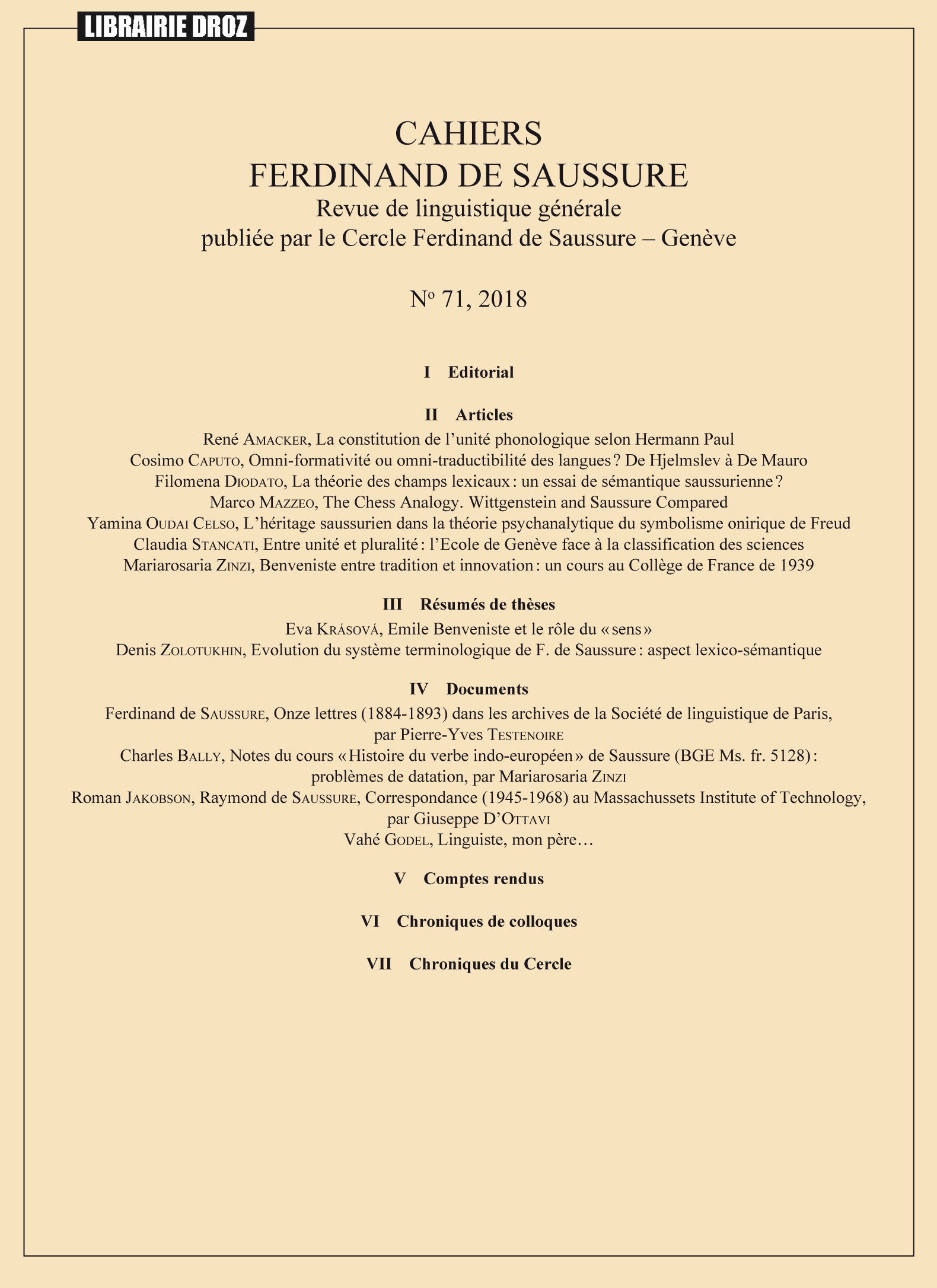Omni-formativité ou omni-traductibilité des langues ? de Hjelmslev à de Mauro
Abstract
Hjelmslev, in his Prolegomena to a Theory of Language, deals with the unlimited capacity of language in forming signs. This feature represents actually a major theoretical pivot, helping us to approach some epistemological (e.g. metalanguage), philosophical (e.g. concerning the nature of human logos) and semio-linguistic (the nature of the sign) issues. The topic was especially developed and deepened in the Italian tradition of linguistics, the focus being not on language as an abstract and synchronic system, but on its concrete realizations occurring in history, society and culture. A term was coined by the Italian scholars to label this approach: that is onniformatività. In this paper, I will follow its pre-history and developments, following a line starting with Ferdinand de Saussure and Emile Benveniste and going to Mario Lucidi, Emilio Garroni and Tullio De Mauro.
Keywords
arbitrariness of sign, restricted/unrestricted languages, translatability, Louis Hjelmslev, Tullio De Mauro
